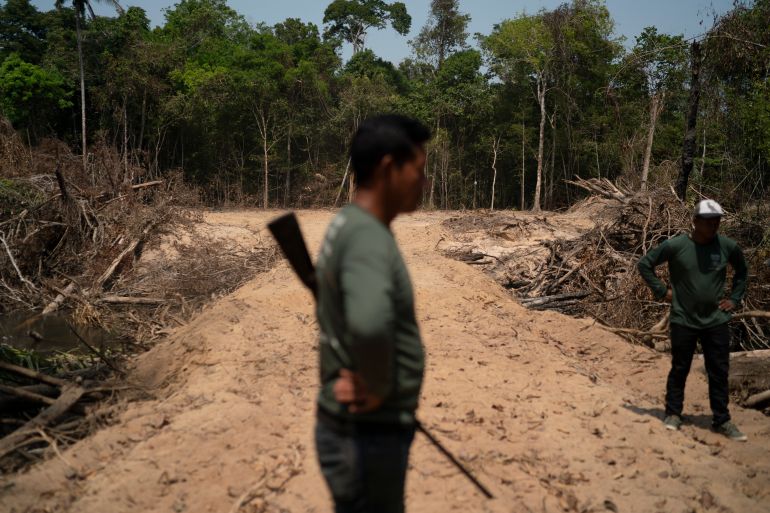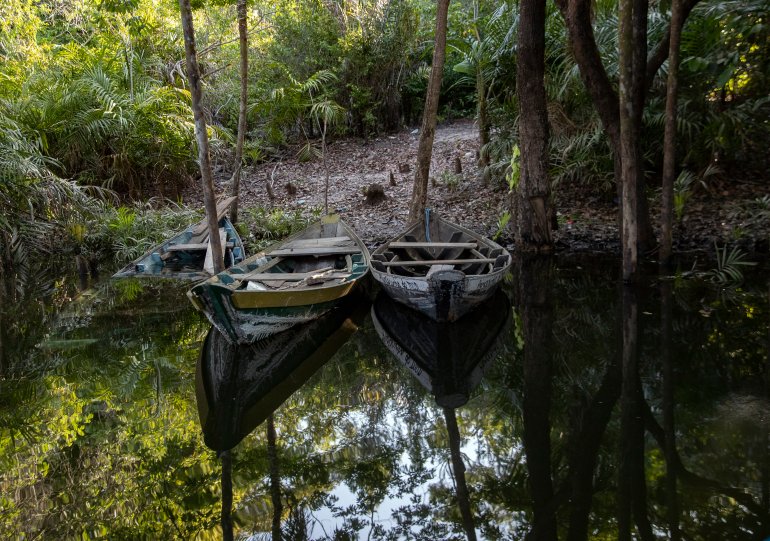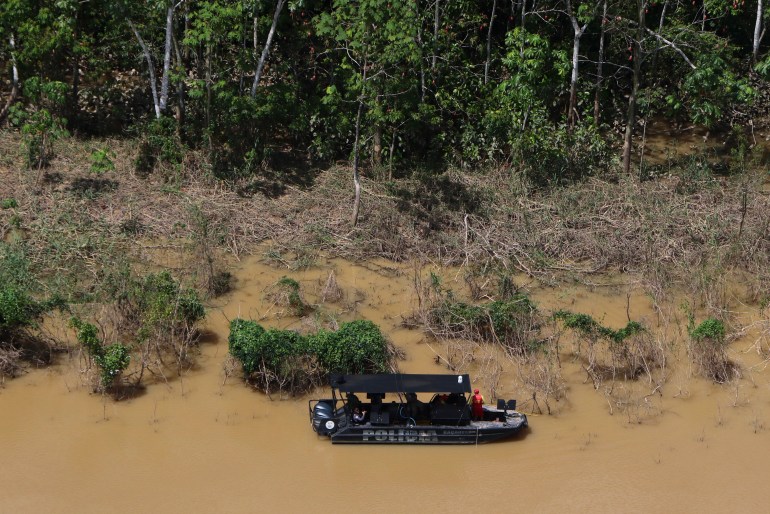Brazil authorities doing little to prevent deforestation: Report
The report says lack of enforcement likely stems from weak legal protections of these areas, a longstanding issue.

Environmental criminals in the Brazilian Amazon are responsible for the massive destruction of public forests, but the nation’s federal police have done little to prevent this ecological damage, a new study has found.
According to the report (PDF), conducted by the Igarape Institute, a Brazilian think-tank, the destruction took place in state and federal forests that are “unallocated,” meaning they do not have a designated use the way national parks and Indigenous territories do.
Keep reading
list of 3 itemsAfter two killings in the Amazon, a push for justice
Why has defending Brazil’s Amazon become so dangerous?
The study analysed 302 environmental crime raids carried out by the federal police in the Amazon between 2016 and 2021. Only 2 percent targeted people illegally seizing undesignated public lands.
“This analysis found that protected areas of the Amazon, including Indigenous Lands, Conservation Units and Permanent Protection Areas, have been increasingly impacted by the ecosystem of environmental crime, principally illegal logging and gold mining,” according to the study.
The report came amid rising global concerns about deforestation in the Amazon, the world’s largest rainforest, and the environmental impact it could have on Brazil and in the region. It comes as nations around the world are suffering from unprecedented heatwaves that experts have said are likely caused by climate change.

Almost half of Brazil’s climate pollution comes from deforestation, according to an annual study from the Brazilian nonprofit network Climate Observatory. The destruction is so vast that the eastern Amazon has ceased to be a carbon sink, or absorber, for the Earth and has converted into a carbon source, according to a study published in 2021 in the journal Nature.
The study also came amid rising criticisms of the environmental policies of far-right President Jair Bolsonaro, who has encouraged more mining in the Amazon, in order to boost economic growth.
Since Brazil’s return to democratic rule in 1985 after two decades of military rule, most successive governments have made moves to extend the legal protections, and today about 47 percent of the Amazon lies within protected areas, according to official data. Bolsonaro, however, has repeatedly said the country has too many protected areas and stalled this decades-long policy.
According to official data, the Brazilian Amazon has about 580,000sq km (224,000sq miles) of federal forests, or an area almost the size of Ukraine.
The report says the lack of enforcement likely stems from the weak legal protection of these areas, in other words, the same problem that draws the illegal activity. Environmentalists have long pressed the federal government to turn these unallocated public forests into protected areas.
In 2016, some 2,240sq km (865sq miles) of unallocated public land were illegally deforested. Last year, it reached almost double that amount. Over six years, the accumulated loss has reached some 18,500sq km (7,100sq miles), according to Amazon Environmental Research Institute, or IPAM, based on official data.
Deforestation is increasingly taking place on unallocated lands in particular. In 2016, they made up 31 percent of all illegally felled forest. Last year, they reached 36 percent.

Igarape divides environmental crime in the Amazon into four major illicit or tainted activities: theft of public land; illegal logging; illegal mining; and deforestation linked to agriculture and cattle farming.
The enforcement operations were spread over many locations, 846, because most investigated deep into illegal supply chains. Nearly half were in protected areas, such as the Yanomami Indigenous Territory, which, despite a heavier police presence, suffers a growing invasion by thousands of illegal gold miners.
The Igarape study also pointed to an extensive “regional ecosystem of crime,” since the police operations took place in 24 of Brazil’s 27 states plus 8 cities in neighbouring countries. “Environmental crime stems from illicit economies that access consumer markets and financing outside the Amazon,” the report says.
“Such criminal assaults on the environment typically come bundled with an array of converging crimes, such as fraud, corruption and money laundering,” according to the report.
Brazil’s federal police did not respond to a comment about its strategy in the Amazon by The Associated Press.